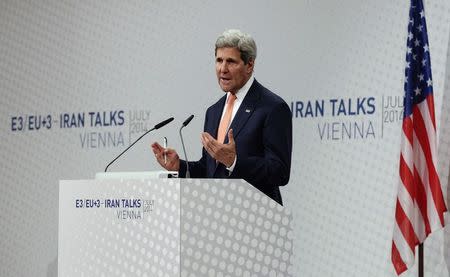Kerry tells Russia's Lavrov investigators must get access to Ukraine crash site

WASHINGTON/MOSCOW (Reuters) - U.S. Secretary of State John Kerry, in a phone call with Russian Foreign Minister Sergei Lavrov on Saturday, stressed that investigators must get full access to the site in eastern Ukraine where a Malaysian airliner was shot down. The State Department said Kerry told Lavrov the United States is "very concerned" over reports that the remains of victims and debris from the site of Thursday's crash, which is under the control of pro-Moscow separatist rebels, have been removed or tampered with. Kerry said Washington was also concerned over the denial of "proper access" to the crash site for international investigators and monitors from the Organization for Security and Cooperation in Europe, a State Department statement said. "This is unacceptable and an affront to all those who lost loved ones and to the dignity the victims deserve," Kerry’s spokeswoman, Jen Psaki, said in a later statement. "We urge Russia to honor its commitments and to publicly call on the separatists to do the same."In an earlier account of the phone call, the Russian Foreign Ministry said Lavrov and Kerry had agreed that all evidence from the downed Malaysia Airlines plane, "(They) agreed on the main - it is necessary to ensure an absolutely unbiased, independent and open international investigation of the Malaysian airliner crash in eastern Ukraine on July 17," the ministry said. The State Department's account of the call did not mention agreement, reflecting the Obama administration's view that Russian President Vladimir Putin's government should exert more pressure on pro-Russian separatists fighting the Ukrainian government. While stopping short of blaming Russia for the crash of Malaysia Airlines flight MH17, in which 298 people died, President Barack Obama accused Russia on Friday of failing to stop the violence that made it possible to shoot down the plane. The United States has said the plane was hit by a surface-to-air missile fired from rebel territory. MOUNTING EVIDENCE U.S. officials describe as convincing audio recordings that the Ukrainian government has released purporting to be of Russian officers and rebels discussing shooting down the plane. Moscow has repeatedly denied Kiev's accusations that it is supplying manpower and hardware across the frontier to the rebels. Driving home its assertion that the Boeing 777 was hit by a Russian SA-11 radar-guided missile, Ukraine's Western-backed government said it had "compelling evidence" the battery was not just brought in from Russia but manned by three Russian citizens who had now taken the truck-mounted system back over the border. U.S. officials have said authorities are trying to determine exactly who fired the Russian-made missile, whether Russian operatives aided in the attack, and how the weapon was delivered to rebel-held territory.. On Saturday evening, the Wall Street Journal reported that U.S. intelligence assessments indicate that Moscow likely provided rebels with sophisticated anti-aircraft systems in recent days, matching evidence put forward by Ukraine. The Journal cited U.S. officials as saying they now suspect that Russia supplied the rebels with multiple SA-11 systems by smuggling them in with other equipment, including tanks. U.S. officials believe the systems were moved back into Russia after the plane was shot down, buttressing what Ukraine charges is an attempt by the rebels and their Russian advisers to cover up their involvement, the Journal said. According to Moscow's account of the phone call, Kerry and Lavrov said all sides should continue to work toward the goals outlined on April 17 in Geneva aimed at ending hostilities and launching a settlement process involving all Ukrainian regions. "Lavrov and Kerry have agreed to use the influence of Russia and the United States on the opposing Ukrainian sides in order to encourage them to move in that direction," the Russian foreign ministry said. The State Department put the onus on Russia, saying Kerry urged Russia to take "immediate and clear actions to reduce tensions in Ukraine." (Reporting by Eric Beech and Matt Spetalnick in WASHINGTON and Maria Kiselyova in MOSCOW; Writing by Frances Kerry; Editing by Sonya Hepinstall, Mohammad Zargham and Paul Tait)

